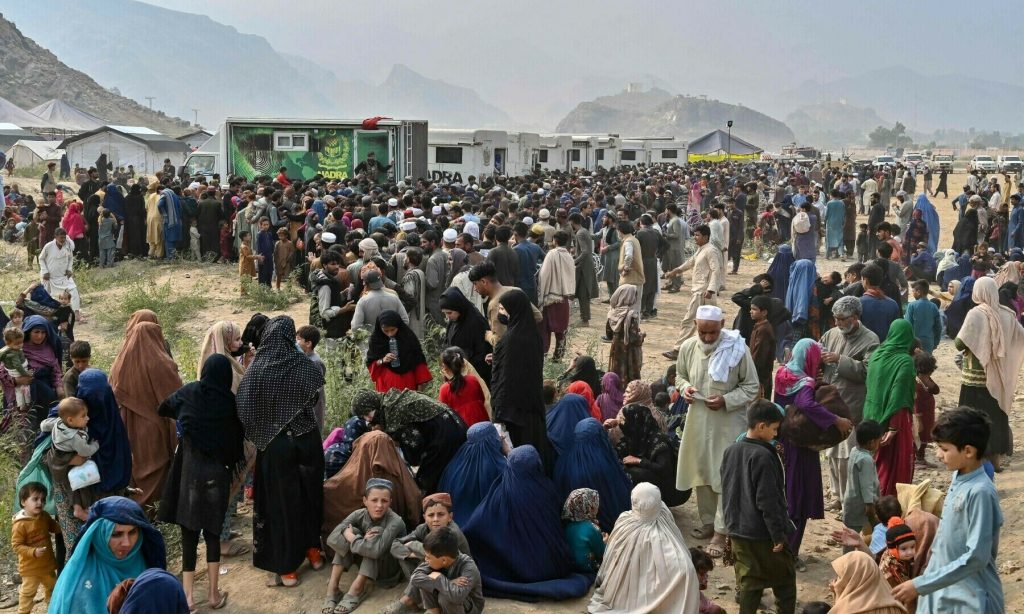According to a press release from the Afghan Presidential Palace in Kabul, a special meeting chaired by Acting Prime Minister Mullah Muhammad Hassan Akhund urged the United Nations and international organizations to facilitate the dignified repatriation of Afghan refugees.
This demand underscores that the Taliban’s interim government considers the issue of forced deportations critical and in need of immediate international attention. It is being portrayed as a clear violation of fundamental human rights. While the international community is urged to take a firm stance against this practice, the Taliban government has largely turned a blind eye to its own governance failures. It must take responsibility by preventing revenges against returning Afghans and reversing oppressive policies, particularly those targeting women and girls.
In the meantime, Afghan refugees continue to face numerous hardships, including fears of persecution, unemployment, and a collapsed healthcare system. The Taliban’s restrictions on women’s education, employment, and freedom of movement further intensify the challenges faced by returnees, making reintegration even more difficult.
Instead of placing blame on Pakistan, the Afghan government should prioritize creating conditions within Afghanistan that are conducive to the voluntary, safe, and dignified return of its citizens. Sustainable strategies aimed at economic stability, security, and human rights protection are essential to reducing the need for Afghans to seek refuge abroad.
Similarly, the international community must work towards ensuring that Afghanistan becomes a safer and more stable place for its citizens. Rather than focusing solely on resettlement, efforts should be directed at supporting initiatives that promote security, human rights, and economic development within Afghanistan. So that Afghans are not forced to flee and those abroad can return voluntarily and with dignity.
On the other hand, the forced deportation of Afghan refugees from Pakistan mirrors a complex challenge for which Pakistan has been left with limited options. With growing economic and security challenges, the country finds it increasingly difficult to host such a large refugee population for the foreseeable future. While ensuring the dignified return of Afghan refugees remains important.
The international community must support efforts to stabilise Afghanistan and share the responsibility of protecting Afghan refugees, rather than placing the entire burden on neighboring countries like Pakistan.


